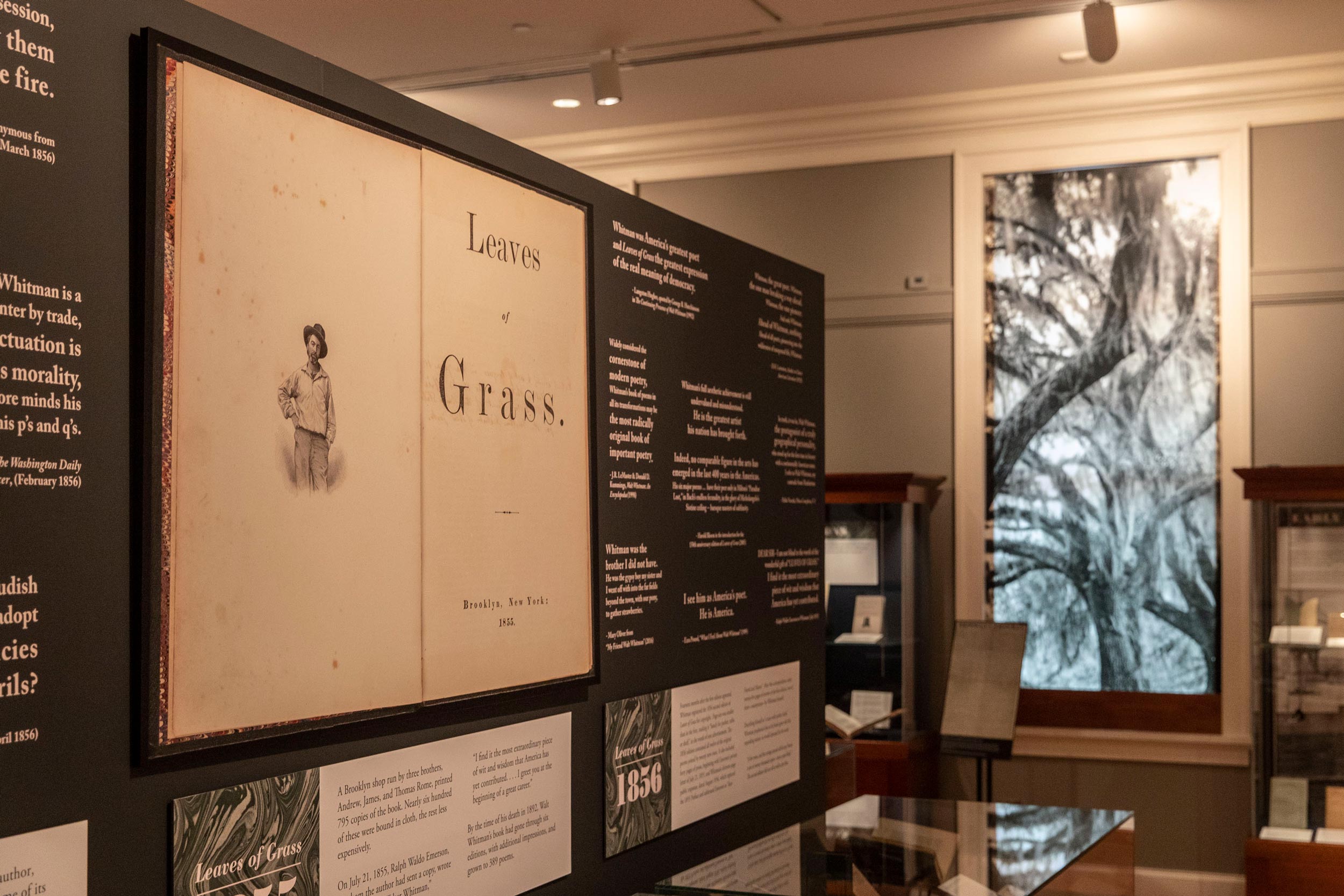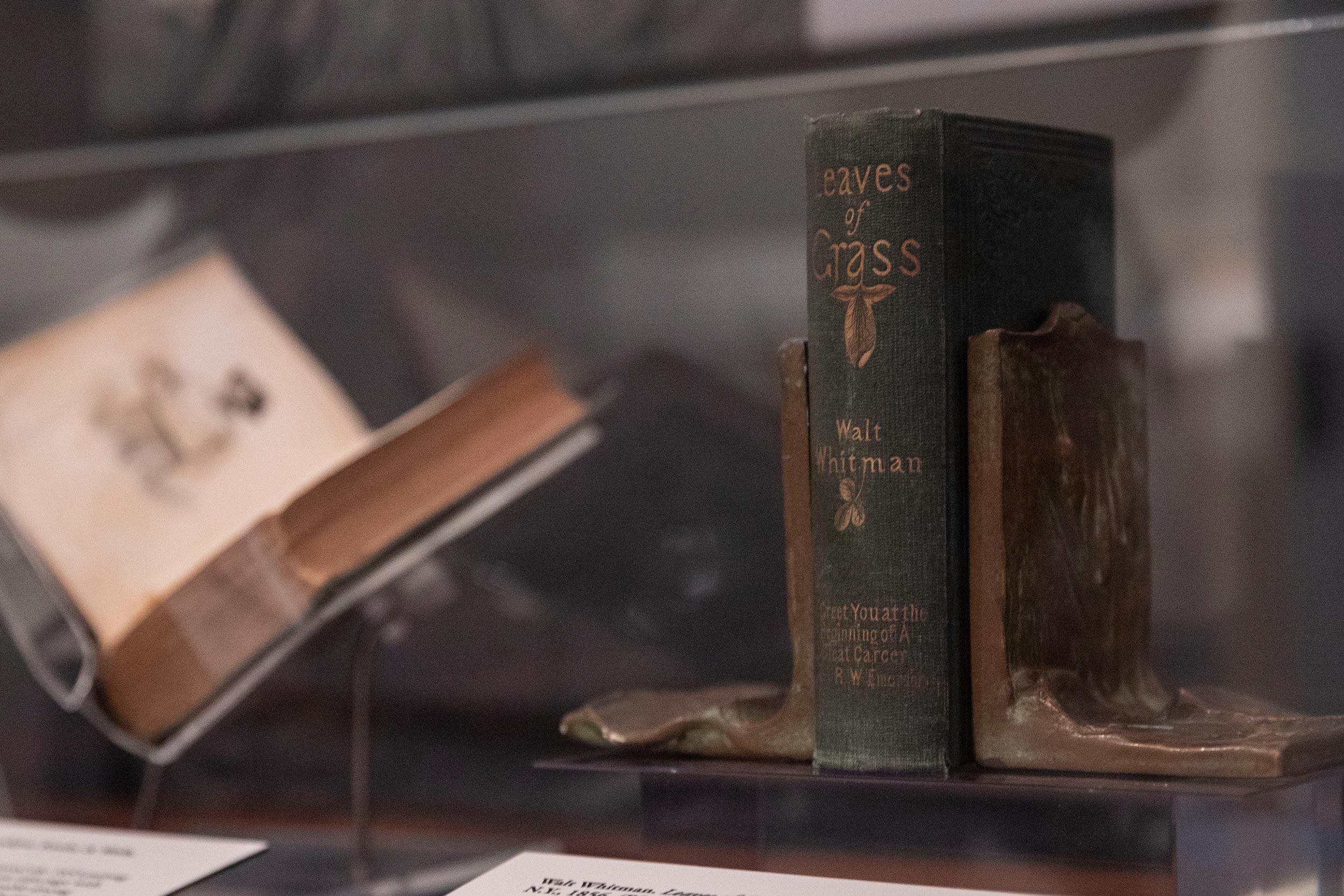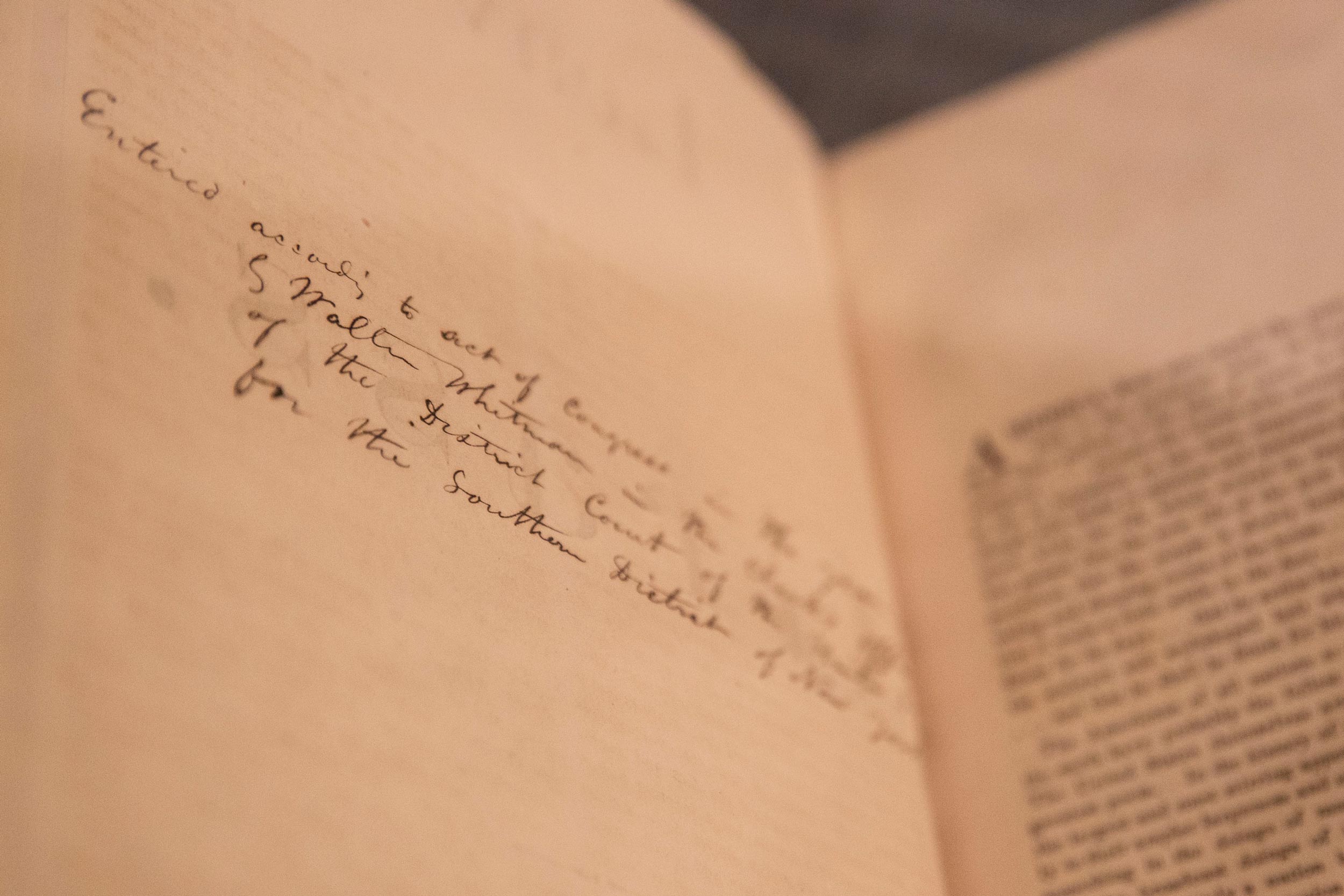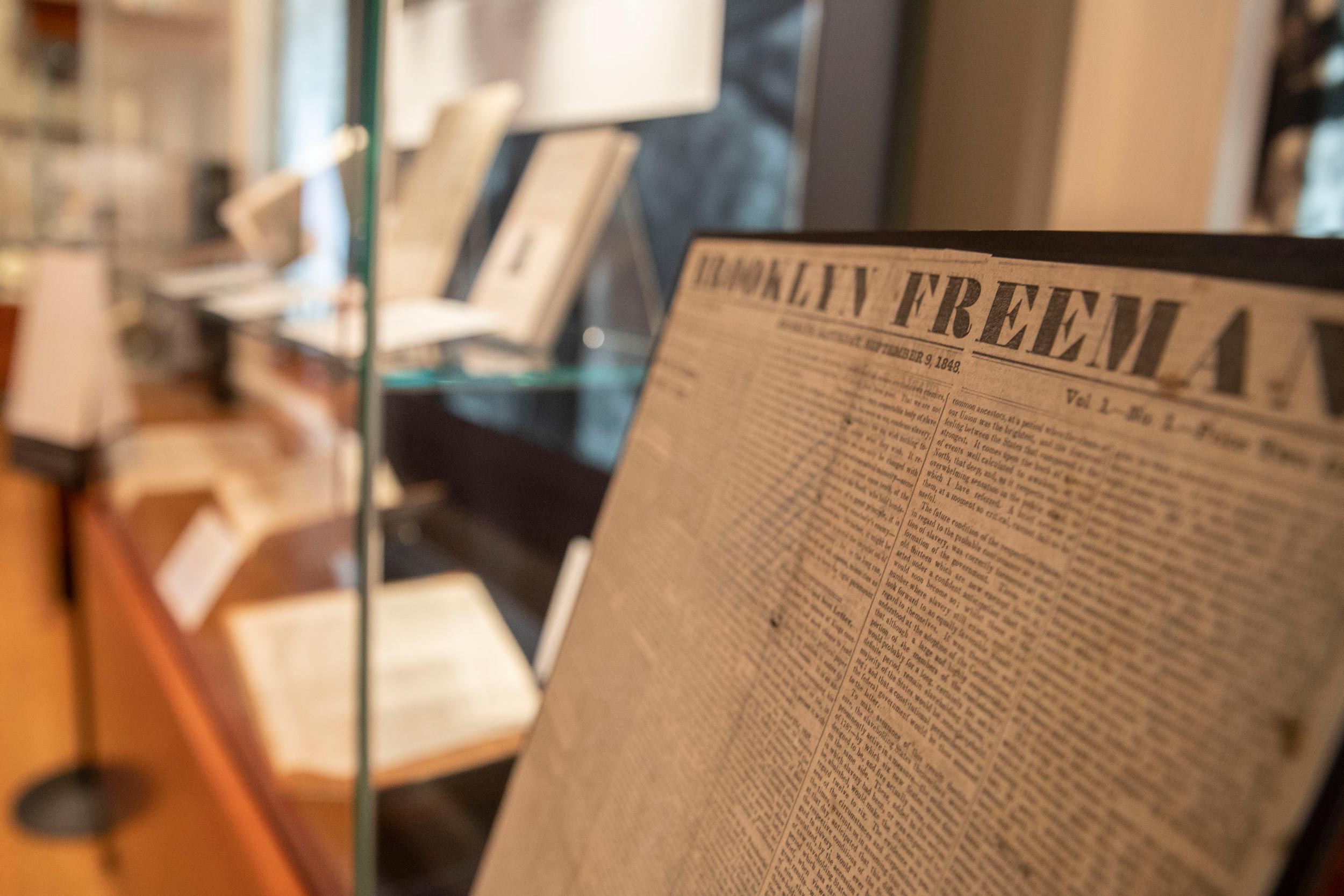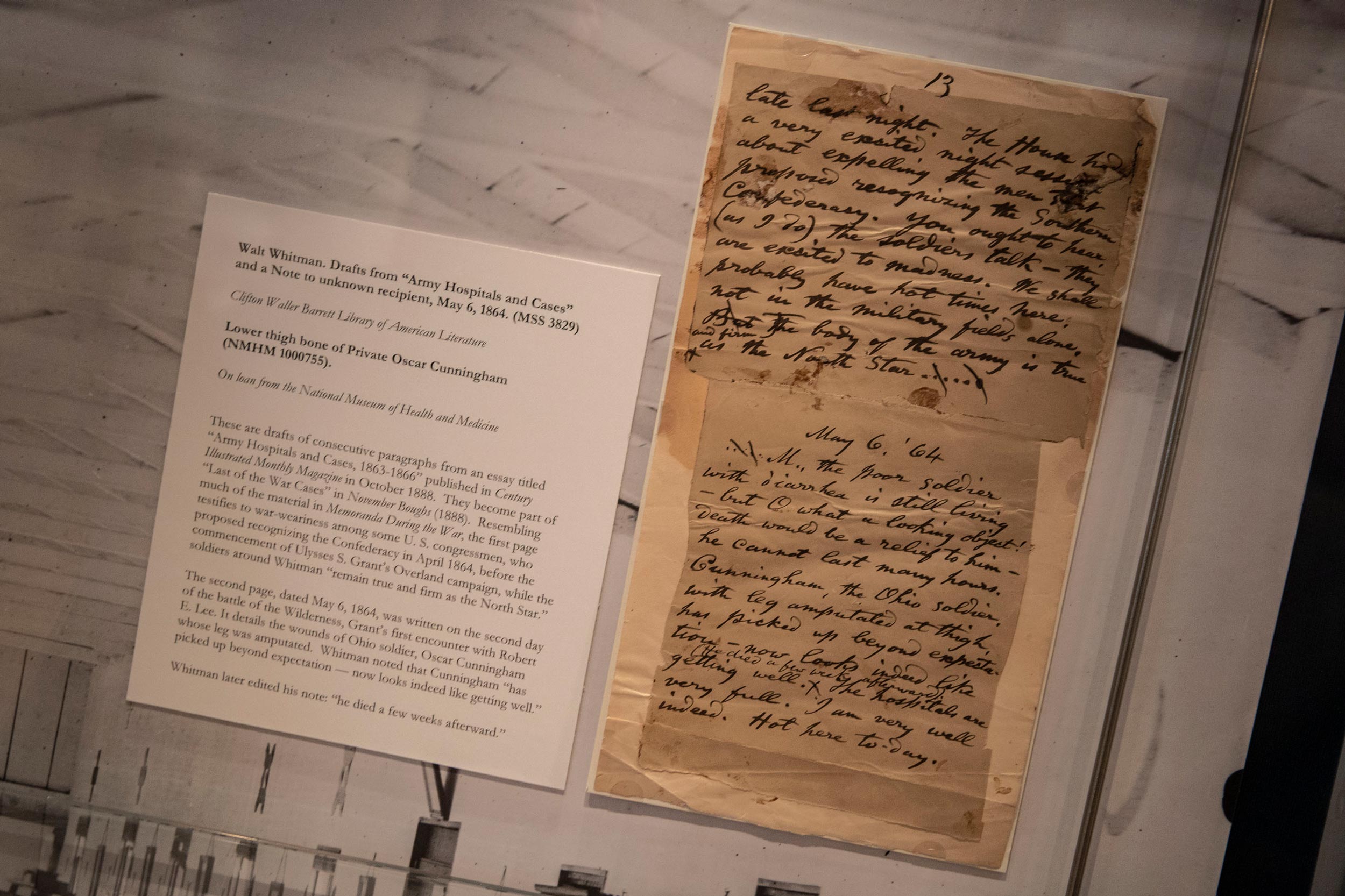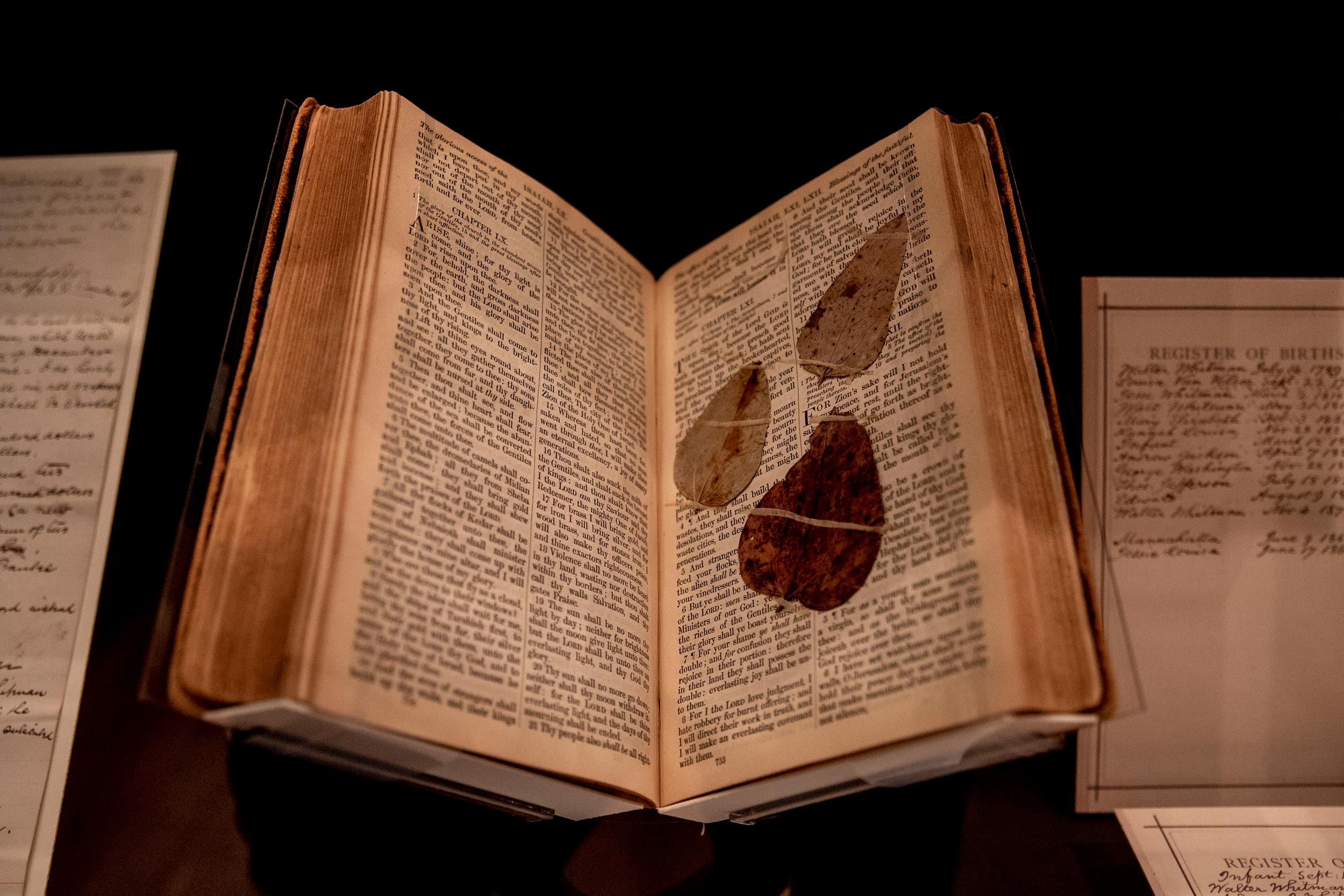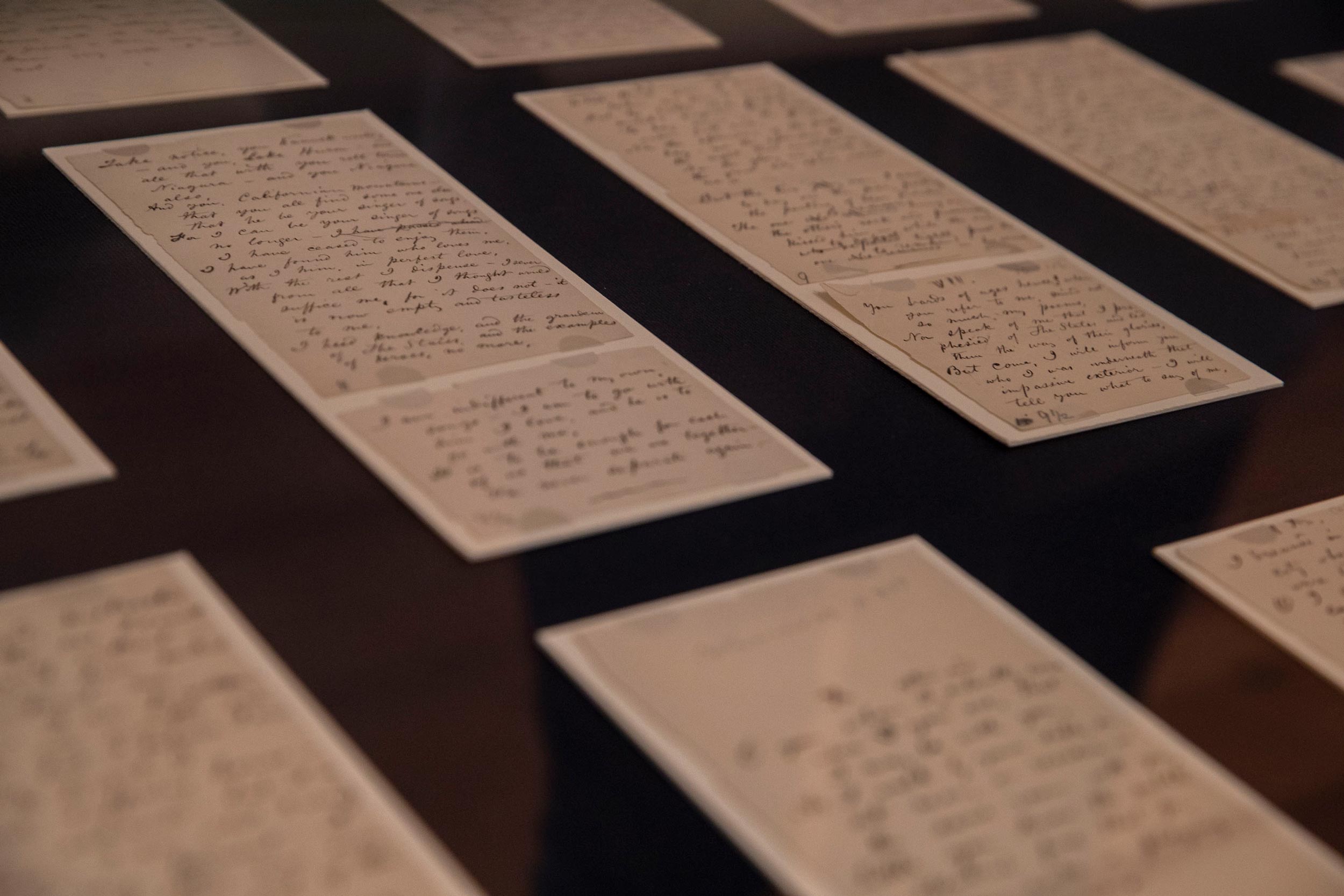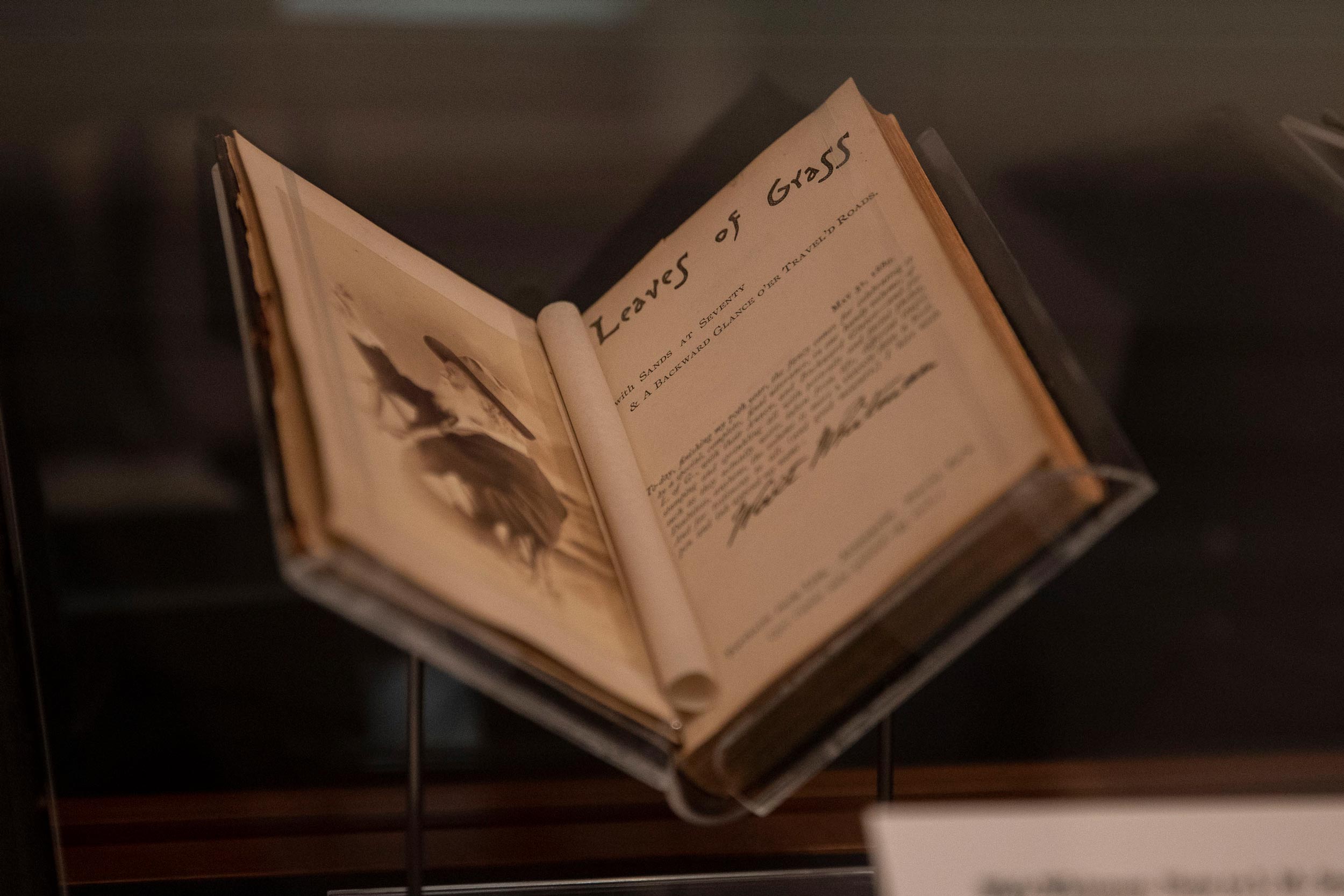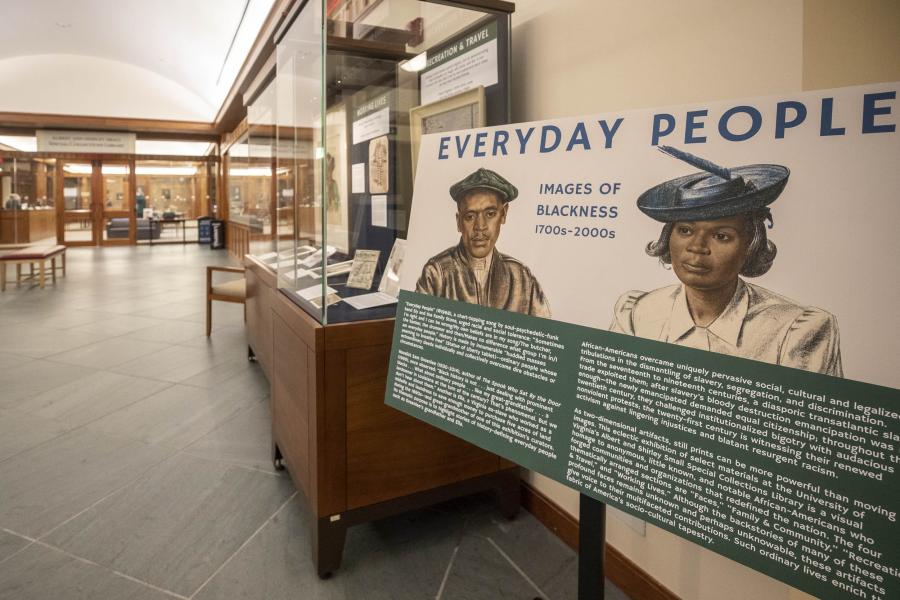A 19th-century printer, journalist and essayist, Walt Whitman became America’s renowned poet many years after he shocked and unsettled American culture with the first publication of “Leaves of Grass” in 1855.
His verse broke most of the rules of convention in his day for composing poetry – such as not rhyming. Eventually, though, it captured the hearts and minds of the modern literary world.
This year, the University of Virginia celebrates the bicentennial of his birth with an exhibition, “Encompassing Multitudes: The Song of Walt Whitman.” The exhibit showcases various editions of his best-known volume, “Leaves of Grass,” and handwritten versions of these and other poems, as well as other writings, including essays against slavery and about Abraham Lincoln, and letters and notes detailing his time working as a nurse during the Civil War.
With unflinching vision and an outpouring of long, flowing phrases, Whitman dove into the individual’s inner life and explored the connections between all kinds of people, and between the human and natural worlds, that seem as relevant today as they were then. He was deeply concerned about the divisiveness of the country.
